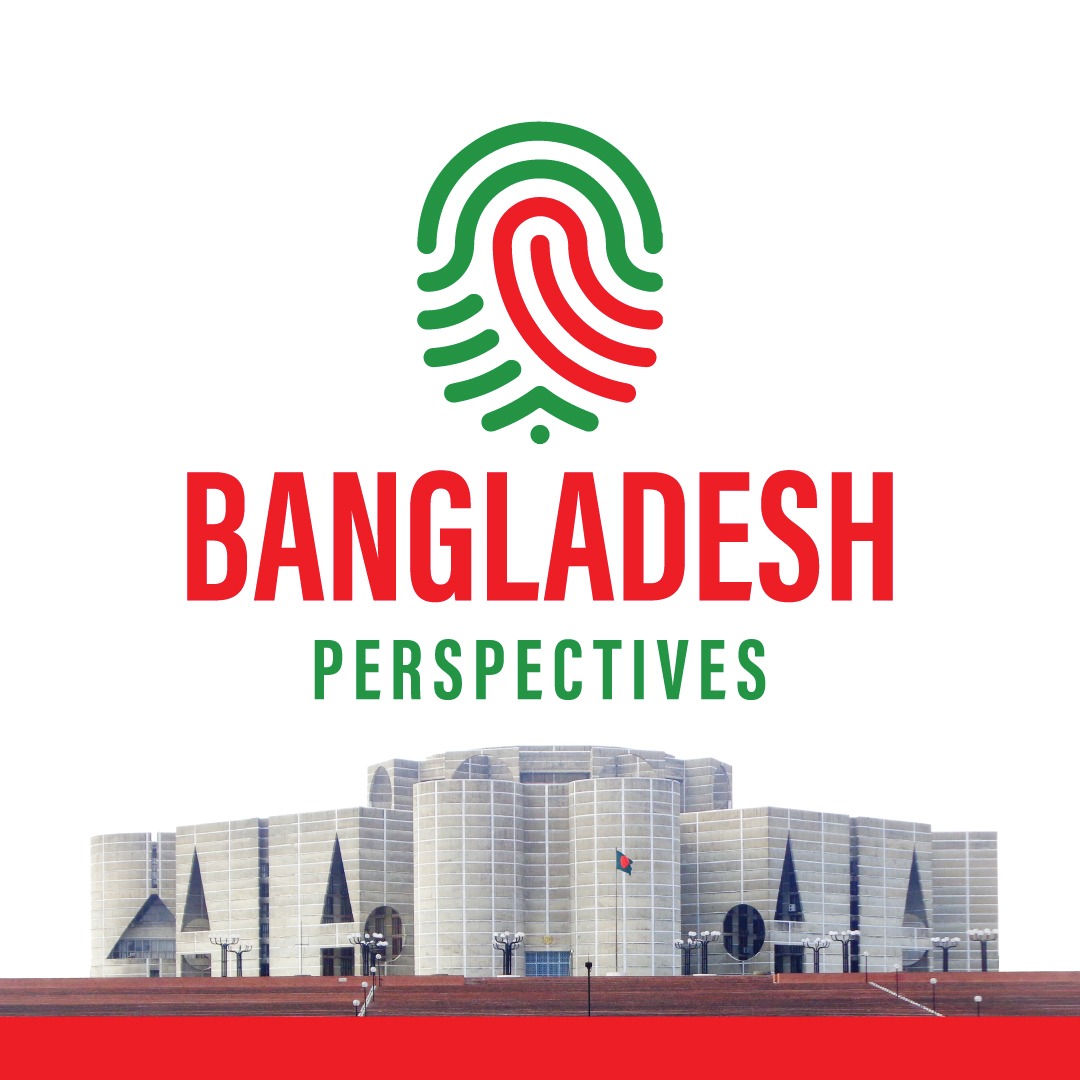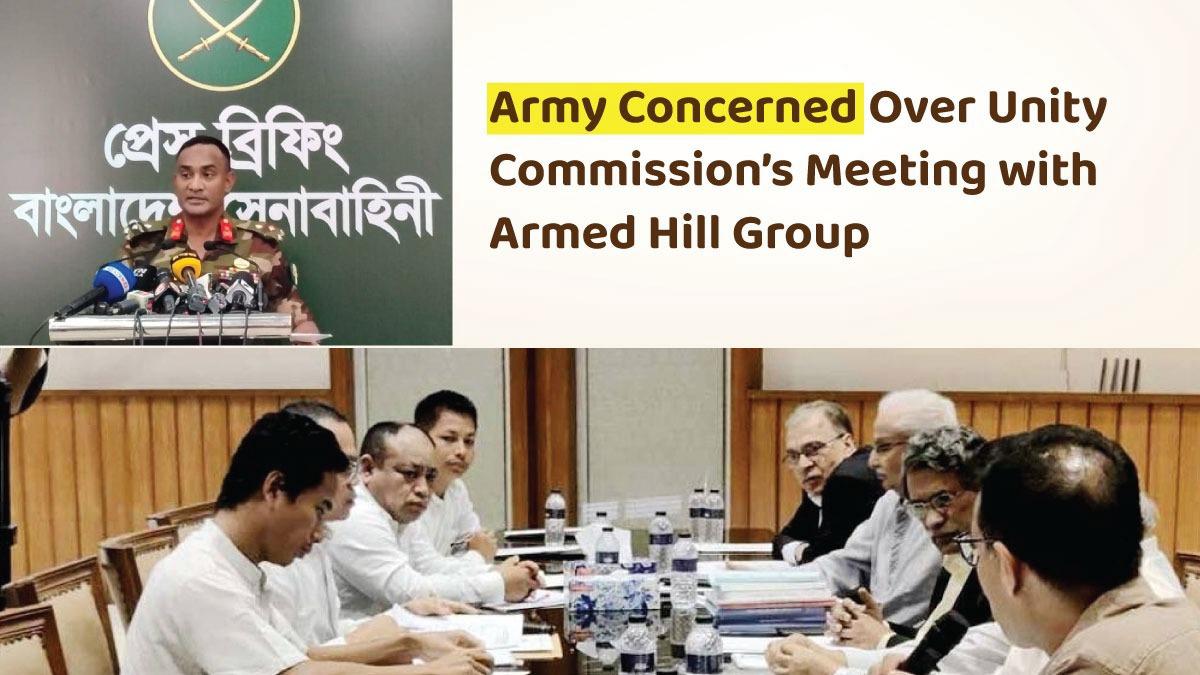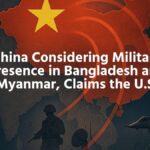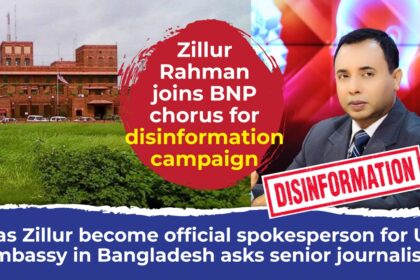The Bangladesh Army has expressed concern over a recent meeting between the Unity Consensus Commission and an armed group from the hill regions. This was disclosed at a press conference held on Monday by military representatives.
During the briefing, journalists raised questions about various issues such as the use of regional corridors, operations at the Chattogram Port, and whether Tesla’s Starlink technology poses any threat to national sovereignty. The army was also asked to comment on the Unity Commission’s dialogue with the armed hill group.
In response, Lieutenant Colonel Shafiqul Islam, speaking on behalf of the military, stated:
“The Bangladesh Army has never been, is not, and will never be involved in any activity that jeopardizes national security. The hill groups being discussed are part of a self-proclaimed terrorist organization (UPDF) that engages in violent activities. Therefore, from our perspective, involving them in electoral or peace processes is not appropriate.”
When asked whether the meeting created any direct conflict between the army and the group, he clarified that there had been no confrontation. Rather, he said, a cordial environment for discussion had been maintained regarding the matter.
The recent meeting between the Unity Consensus Commission and the United People’s Democratic Front (UPDF)—a regional political and armed group active in the Chittagong Hill Tracts—has sparked strong criticism in both political and security circles. Concerns have been raised particularly due to the UPDF’s past activities, its history of armed militancy, and its confrontational relationship with the government, calling into question the legitimacy and justification of the meeting.
The meeting was chaired by the Commission’s Vice President Ali Riaz and moderated by Monir Haider, special assistant to the Chief Adviser. Other commission members present included Safar Raj Hossain, Badiul Alam Majumdar, and Mohammad Ayub Miah.
The UPDF delegation was led by Michael Chakma, and included:
• Amal Tripura, Central President of the Greater Hill Tracts Students’ Council,
• Jiko Tripura, President of the Democratic Youth Forum Central Committee and UPDF member,
• Sunayan Chakma, former President of the Hill Students’ Council and also a UPDF member.
Sources indicate that the Unity Commission is conducting dialogues with various stakeholders to create a conducive electoral environment. As part of this initiative, they held discussions with the UPDF. Although no official details of the meeting have been released by the government, news of the event began circulating on social and mainstream media, triggering intense debate.
Analysts warn that engaging groups that rely on armed politics and show little respect for elections or state institutions may set a dangerous precedent by legitimizing them within official platforms.





